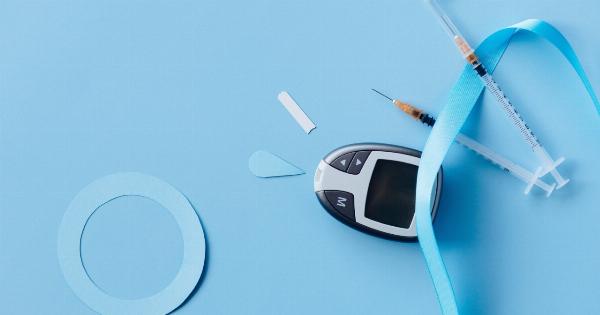Diabetes mellitus is a chronic disease that affects millions of people worldwide. It is a condition where the body is unable to produce or use insulin properly, leading to high levels of sugar in the blood.
It is important for individuals with diabetes to undergo regular testing to manage the disease properly.
Glycated Hemoglobin (HbA1C) Test
The HbA1C test is a blood test that measures the average blood glucose levels over the past two to three months. The test measures the amount of glycated hemoglobin in the blood, which is a marker for sugar in the blood.
It helps to monitor the long-term control of blood sugar levels in individuals with diabetes.
Fasting Plasma Glucose (FPG) Test
The FPG test is a blood test that measures the amount of glucose in the blood after an overnight fast. It helps to diagnose prediabetes and diabetes.
Fasting plasma glucose levels of 100 to 125 mg/dL indicate prediabetes, and levels of 126 mg/dL or higher indicate diabetes.
Oral Glucose Tolerance Test (OGTT)
The OGTT is a blood test that measures the amount of glucose in the blood before and after drinking a glucose-rich drink. It helps to diagnose prediabetes and diabetes.
Individuals with prediabetes have blood glucose levels between 140 to 199 mg/dL two hours after drinking the glucose-rich drink, and those with diabetes have blood glucose levels of 200 mg/dL or higher two hours after drinking the glucose-rich drink.
Random Plasma Glucose (RPG) Test
The RPG test is a blood test that measures the amount of glucose in the blood at any given time. It helps to diagnose diabetes in individuals with symptoms of high blood sugar such as increased thirst, urination, and blurred vision.
A random plasma glucose level of 200 mg/dL or higher indicates diabetes.
Urine Test
Urine tests are used to detect high levels of sugar in the urine, which is an indication of high blood sugar. The urine tests do not diagnose diabetes but indicate the need for further testing.
If sugar is detected in the urine, other tests such as the HbA1C, FPG, OGTT, or RPG tests may be conducted to confirm the diagnosis of diabetes.
Cholesterol Test
Diabetes increases the risk of developing high levels of LDL (bad) cholesterol and low levels of HDL (good) cholesterol, which can lead to heart disease.
Cholesterol testing helps to monitor cholesterol levels and manage the risk of heart disease in individuals with diabetes.
Kidney Function Test
Diabetes can damage the kidneys and lead to kidney failure. The kidney function test measures the level of creatinine and urine albumin in the blood to assess the function of the kidneys.
Early detection of kidney problems can help to prevent or delay kidney failure in individuals with diabetes.
Eye Exam
Diabetes can damage the blood vessels in the eyes and cause vision loss. An eye exam is used to detect diabetic retinopathy, a condition where the blood vessels in the retina of the eye are damaged due to diabetes.
Early detection and treatment of diabetic retinopathy can prevent or delay vision loss in individuals with diabetes.
Foot Exam
Diabetes can cause nerve damage and poor blood flow to the feet, which can lead to foot problems such as infections, ulcers, and amputations.
A foot exam is used to detect foot problems in individuals with diabetes and to provide education on foot care and prevention of foot problems.
Conclusion
Individuals with diabetes require regular testing to manage the disease properly. The tests include the HbA1C, FPG, OGTT, RPG, urine test, cholesterol test, kidney function test, eye exam, and foot exam.
Regular testing can help to monitor blood sugar levels, prevent or delay complications, and improve the quality of life in individuals with diabetes.




























